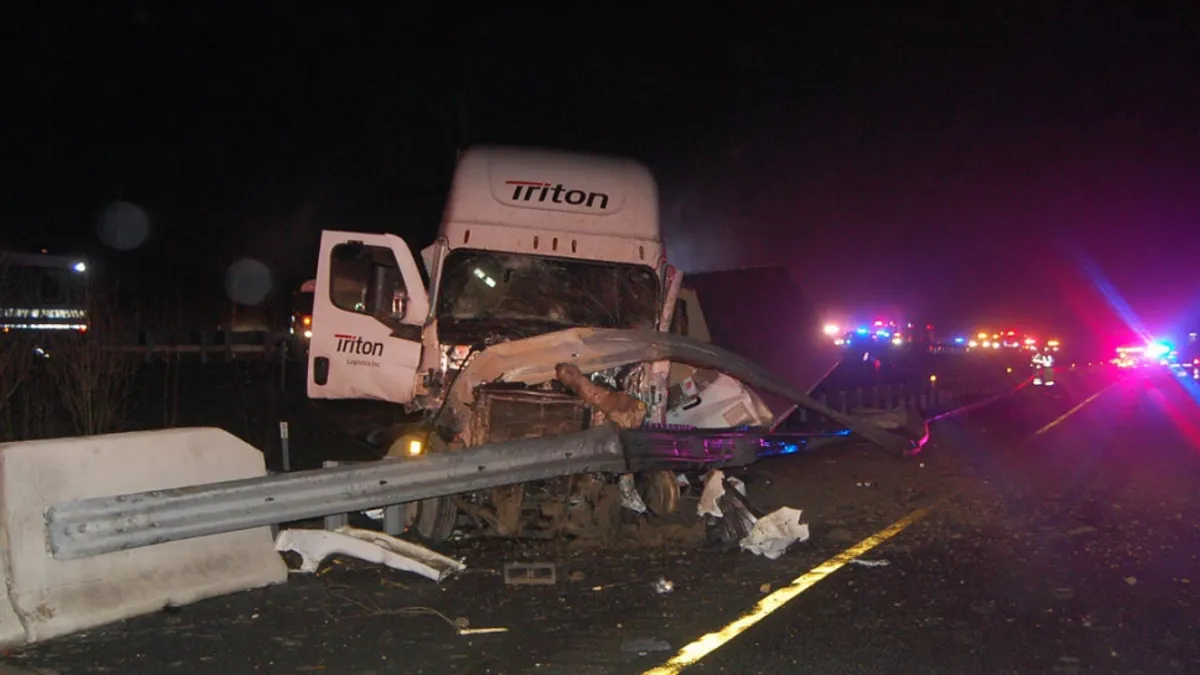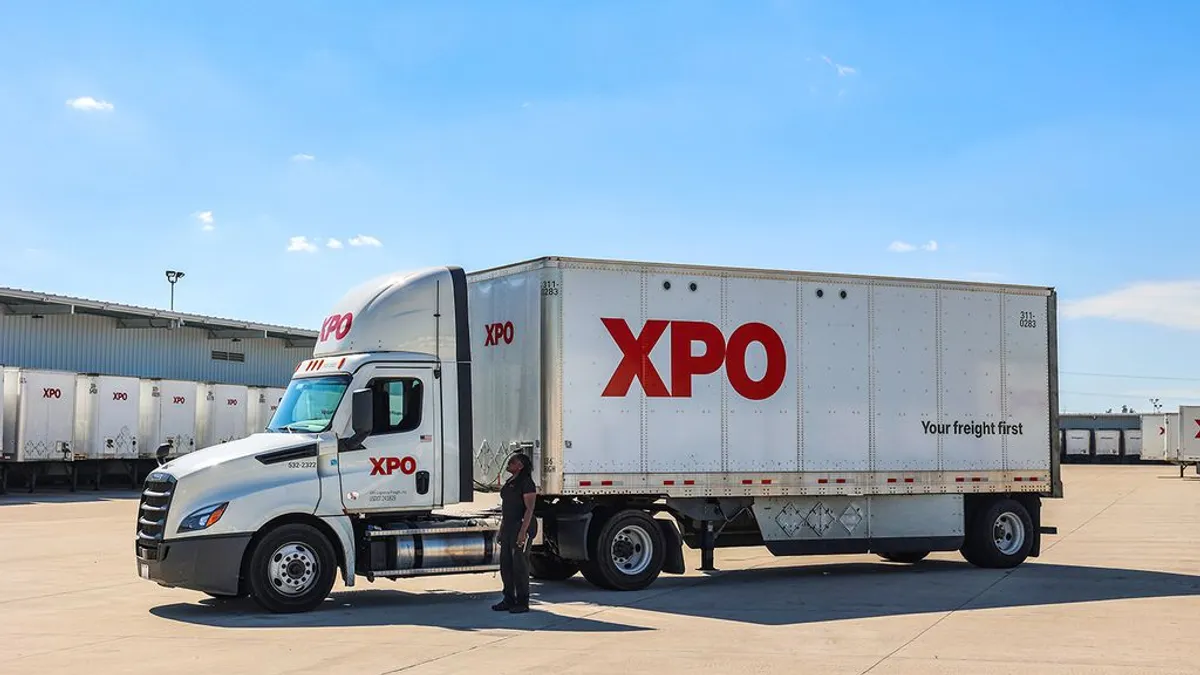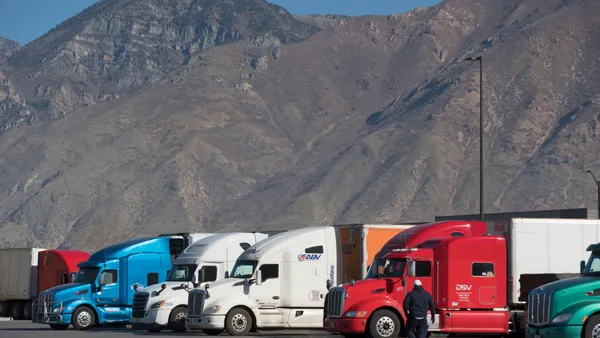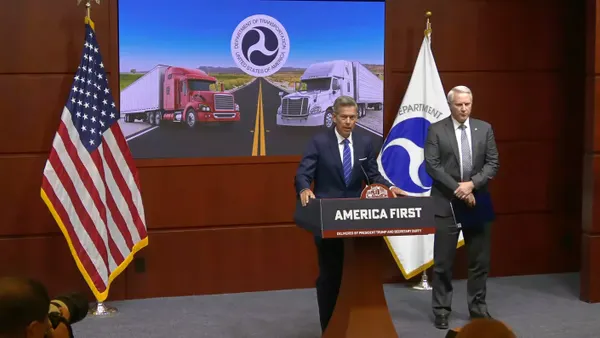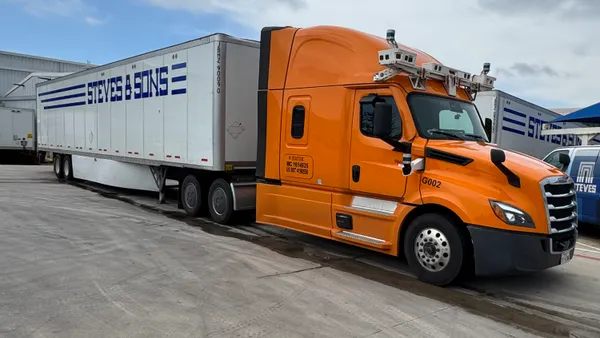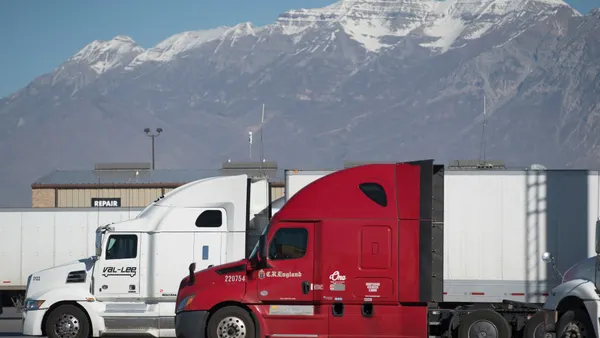A fatigued truck driver and company culture that thwarted hours of service regulations with fictitious logs contributed to a fatal 2022 crash in Virginia involving a slowly driven party bus, according to a federal safety investigation.
The Triton Logistics tractor-trailer was traveling at 65.5 mph just before the collision in cruise control, and engine control module data showed the driver did not brake prior to impact, a National Transportation Safety Board report released last month found.
Traveling in the right-most lane on I-64 near Williamsburg around 1:36 a.m., the party bus was estimated to be driving around 25 mph in the seconds leading up to the crash and about 20 mph around the time of impact.
The crash pushed the bus across multiple lanes of traffic and through a center median guardrail, ejecting all of the 23 bus occupants and killing three of them, according to the NTSB report.
None of the bus occupants were wearing seatbelts in the limousine-style seating arrangement. The Triton driver’s seatbelt was strapped in but buckled behind the seated driver, according to the investigation.
The driver was delivering a load from Missouri on Dec. 14, headed for a drop yard in Chesapeake, Virginia, and operating under the guise of a team driver, according to an interview conducted by NTSB senior accident investigators. That allowed the company to skirt HOS rules, the agency said.
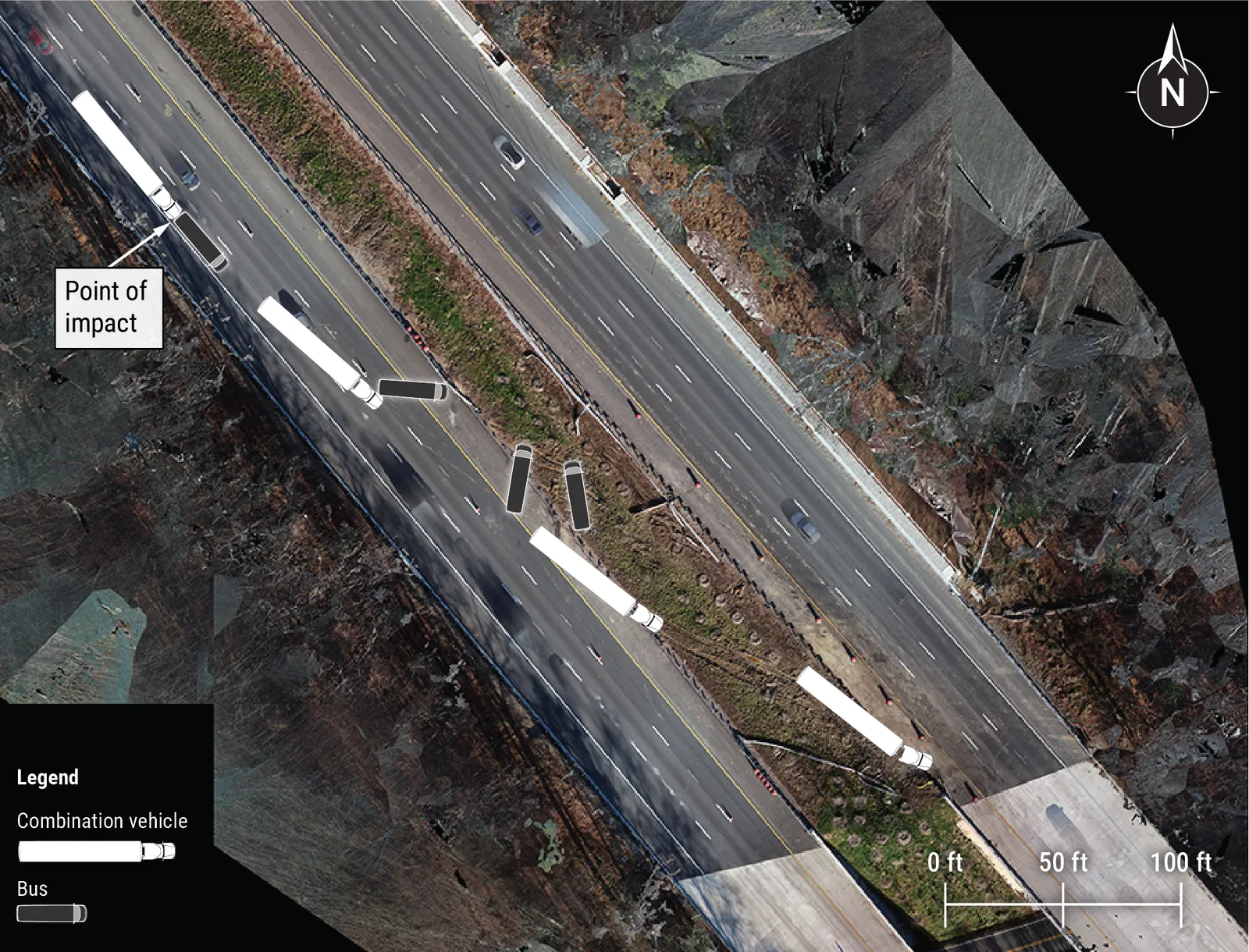
Multiple ex-Triton drivers told NTSB and Federal Motor Carrier Safety Administration officials about a process to evade allowable driving hours.
“I basically repeated what they told me to say,” the driver involved in the crash told investigators. The driver shared with the NTSB that he would tell roadside inspectors and police that he just dropped off a codriver at a truck stop. That also occurred with state police the night of the fatal crash, he said.
The company’s CEO and HOS manager denied knowing about the fictitious logins, per the report. Meanwhile, the investigation found that the codriver login was essentially the same as the driver’s (based on the driver’s name and the number “2”), according to the NTSB report. The codriver’s login featured two additional letters at the end of the login that said “tl,” the report said.
“Triton’s HOS manager stated that his team was responsible for creating driver ELD logins ..., but he denied creating additional logins for drivers to use, stating that might have been ‘a mistake,’” the NTSB report said. “Triton’s chief executive officer also could not explain the discrepancy associated with the inaccurate login of a codriver.”
In a lawsuit regarding the crash, the company denied similar claims that the company falsified log records. The federal court case in Virginia is ongoing. Founder and Chairman Andrew Voveris declined to comment, and attorneys for the company didn’t immediately reply to a message on Tuesday seeking comment.
The truck driver involved in the crash would sleep and begin work depending on how he felt, and he slept about five hours before starting his shift again that night, the man told investigators.
The driver, who had a CDL for 16 years when interviewed, described the alleged HOS deception as not unique to Triton, where single drivers drive team miles or logs are adjusted electronically.
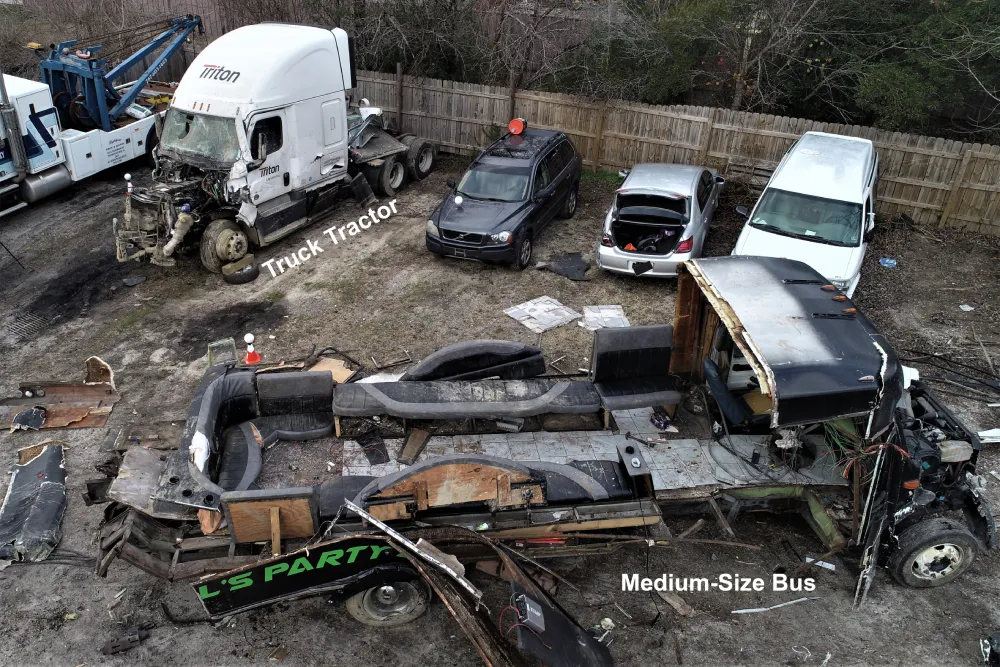
Among a series of recommended changes, the NTSB called on FMCSA and the National Highway Traffic Safety Administration to make reforms previously raised involving forward collision avoidance systems and mandatory inward-facing video cameras for buses and trucks over 10,000 pounds.
“Advanced vehicle technologies, including automatic emergency braking and adaptive cruise control, were available as standard equipment for this truck-tractor; however, the carrier opted not to purchase these systems,” receiving a discount for the 2022 Freightliner Cascadia involved in the crash, the NTSB report said.
New recommendations included a fatigue management program for Triton and commercial vehicle safety information sharing for Virginia.
“The ability to track data entry in the electronic logging device software could increase accountability and transparency and deter motor carriers from making false entries aimed at circumventing hours-of-service regulations,” the NTSB said.



